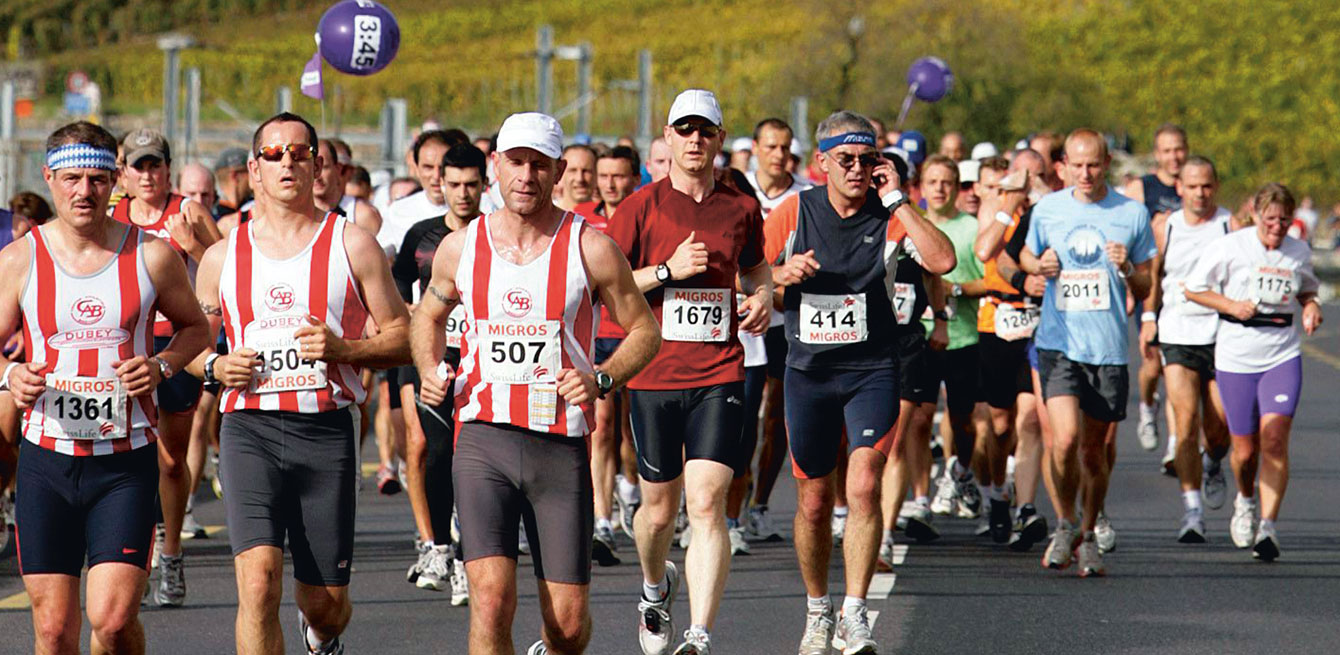
Dietary supplements sometimes contain performance-enhancing substances and can endanger your health.
Nearly 15% of amateur athletes use doping products. That is what physicians Stéphane Borloz and Gérald Gremion announced last year in the journal from the Swiss Society of Sports Medicine (SSMS). Three main factors explain the phenomenon: 1) lack of awareness about the danger of using these products, 2) desire to boost performance and 3) body worship. “Specialised websites sell all sorts of dietary supplements, and it’s often impossible to check their ingredients,” says Stéphane Borloz. “Some of these products can contain illegal substances, others are just plain adulterated.”
With each test costing between 500 and 1,000 Swiss francs, sporting event organisers most often cannot afford to set up effective drug testing infrastructure. “We already lack the resources to combat drug use among professionals,” notes Stéphane Borloz. “The situation in amateur sports is even more complicated.”
The rare anti-doping tests organised at amateur competitions are available on a voluntary basis. Users are therefore at liberty to decline. In 2006, former professional cyclist Christian Charrière, who came in fifth place at Sierre-Zinal, had refused to cooperate for testing. A few days before him at another competition, mountain biker Daniel Paradis also said no. Their obstinance caused the organisers to start wondering and raised suspicions about the two racers.
With each test costing between 500 and 1,000 Swiss francs, sporting event organisers most often cannot afford to set up effective drug testing infrastructure.
“Most athletes are healthy, want nutritional advice and do things right. Then there are the others, who get out of hand,” says Olivier Baldacchino, a running coach in Geneva. In his fifteen years in the business, no one has ever approached him directly about doping, but he remembers a former client who was later arrested after buying performance enhancers online.
Body worship
Doping also pervades the world of fitness, where body worship is prevalent. Gym lovers sometimes add stimulants – including amphetamines or anabolic steroids like nandrolone and growth hormones – into their cocktail of dietary supplements. These products can cause serious health problems such as heart conditions, liver or kidney damage or fertility issues. Combining a number of these stimulants can also cause significant side effects, not to mention the risk of infection from needles.
Substance abuse is also found among amateur thrill-seekers. Gérald Gremion, head doctor at the CHUV and head of the Swiss Olympic Medical Centre, points to snowboarding and BMX racing as disciplines typically vulnerable to doping. “Those who practise these sports want to find ways of losing their inhibitions. They take cocaine, cannabis or similar stimulants to push themselves to take risks.”
Although doping only seems to concern a minority of amateur athletes, sports physicians believe that it is crucial to act upstream by emphasising prevention. “Nowadays, people tend to over-medicate themselves,” says Gérald Gremion. “Sport should be practised in the healthiest state possible.” Medicine already has side effects, and these are only exacerbated by physical activity.
“Performance has become the top priority in all areas of our society,” says Martial Saugy, director of the Swiss Laboratory for Doping Analyses (LAD). But if you aim too high, you end up realising that you’ll never be perfect or as good as you want. “And then, you risk depression.”
A concentrated source of nutrients or other substances with a nutritional or physiological effect. These supplements sometimes contain certain ingredients, such as stimulants, without any mention of them on the packaging.
Amphetamines, cocaine, caffeine, ephedrine and their derivatives are the most commonly used. Stimulants boost concentration and focus, reduce the feeling of tiredness, increase aggressiveness and promote weight loss.
Athletes are fond of the caffeine in energising, antioxidant drinks, as it helps the organism better consume or burn its fat. In high doses, it can have performance-enhancing effects.
A category of steroid hormones related to a natural human hormone, testosterone, anabolic steroids are used to build muscle mass.